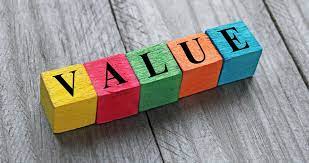Responsibility and ownership are interesting. I think everyone knows somebody who blames everyone else for their problems and knows some others who do the inverse. If you think about any topic long enough you will come to the realization that everyone has joint ownership for everything that happens if he or she is involved.
If you think about your life from a proactive frame of reference though and you want to get the best results that you can influence then it is best to view outcomes as your own individual responsibility though. From that perspective it is the individual’s responsibility to anticipate what may happen and take proactive action to mitigate it. If that is your frame of reference then you can’t shift responsibility to anyone else for your issues other than yourself. If you’re in a leadership position this is the tact that you want to take. You’ll get the best results when you develop a culture of personal ownership for actions.
Determine an overall goal and determine what is in your direct control and what is not within your direct control. If not in direct control determine how you can influence the outcome. If there is really nothing at all that can be done (which is most likely not the case in most situations) then you should not focus on it and instead focus on what you can control.
What do you do in situations where you have a financial liability for responsibility? The best way to manage this is if you’re in a financial liability situation then know all the terms in and out then ensure that you are proactively communicating any agreements.
What do you do in situations where you’re blamed for something? Well think about it. Is the outcome actually a direct result of your actions? If you’re concerned that this could happen or happens consistently with other people just get out in front of it and take responsibility for what is going on then troubleshoot the issue to get to the root cause and fix it. If you’re the owner or manager of your group this is really the best approach. If you’re just an employee then you’ll more likely to move up (as long as you’re learning from your mistakes) as you are the person who are taking ownership for and resolving issues.
Although everything is not always your fault you’re better off taking responsibility for everything. If you look at it in another way it means that you are always in control because you are driving outcomes. Think about the reverse where you are always a victim who is blaming everyone for anything else. What those people are saying is that ‘I have no control over myself my actions or others’ – that’s a terrible way to live life because it means that there is no possibility for you to change the outcome. Although there is externality that you have no control over you’re better off retrospectively thinking how it happen and what can you personally do to prevent it from ever happening again.
That said, taking responsibility for your actions and outcome is different than beating yourself up for doing the wrong thing or getting a bad outcome; an action that is counter productive. If you beat yourself up and then you make a decision that makes your situation worse then you have created two problems. A better solution is to just accept that what happened happened and then forgive yourself – you can make a statement of ‘if I knew what I know now I would make a different decision’ and when the situation happens again make the better decision. Learn from your mistakes, document them, identify when they come up again, and take corrective action. Beating yourself up or punishing yourself is a waste of time and makes your situation worse.
Additionally, if you are working with other people don’t beat them up for mistakes they make. Help people think retrospectively about their actions and how they can make different decisions. If they don’t want to change or don’t take responsibility for actions they are taking then you can challenge them in that situation but don’t start with a direct or aggressive approach. Most people most of the time have good intentions and want to improve their situation or outcomes if given the opportunity.
The best way to have productive conversations is to focus on observable facts and actions then the outcome of those actions. Don’t label the outcomes as good or bad or make a judgement about them. That way you can avoid becoming emotional or the person you are speaking with becoming emotional.

